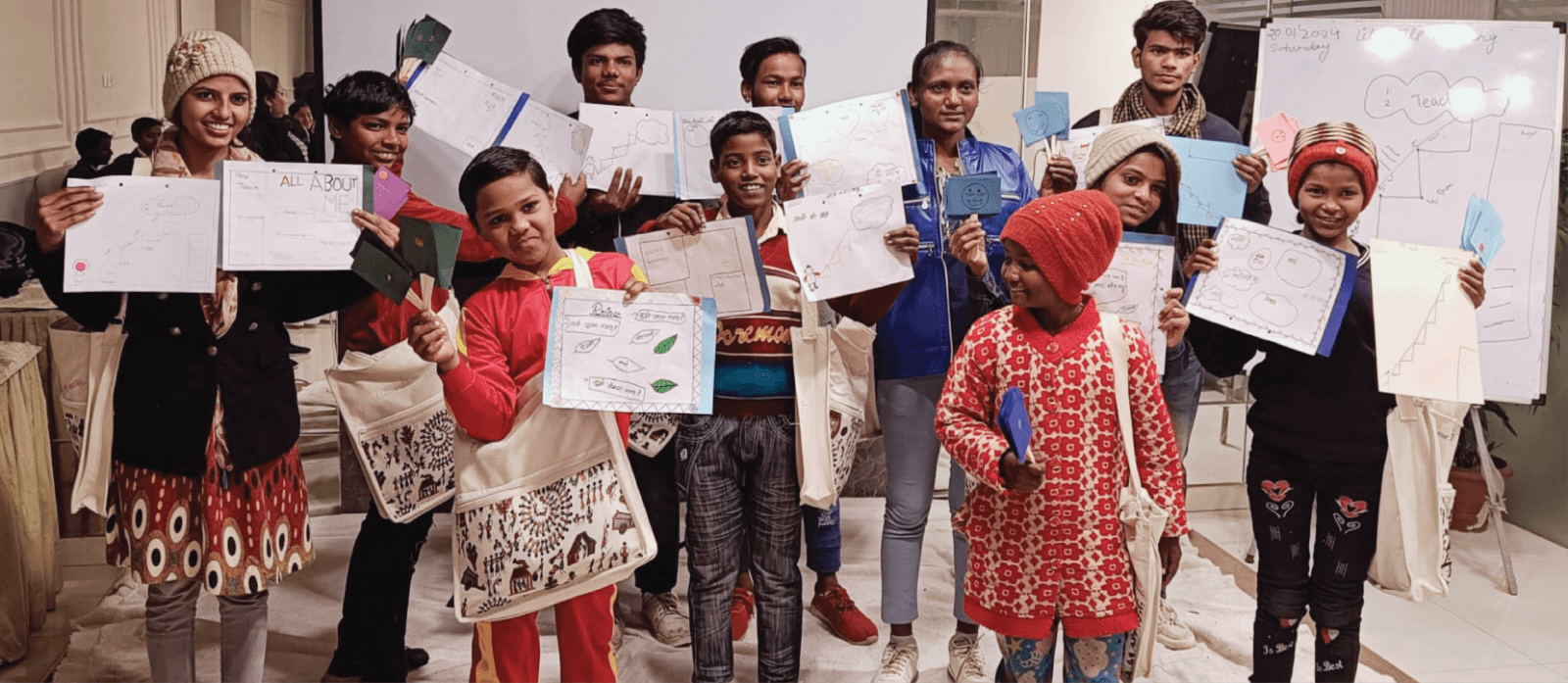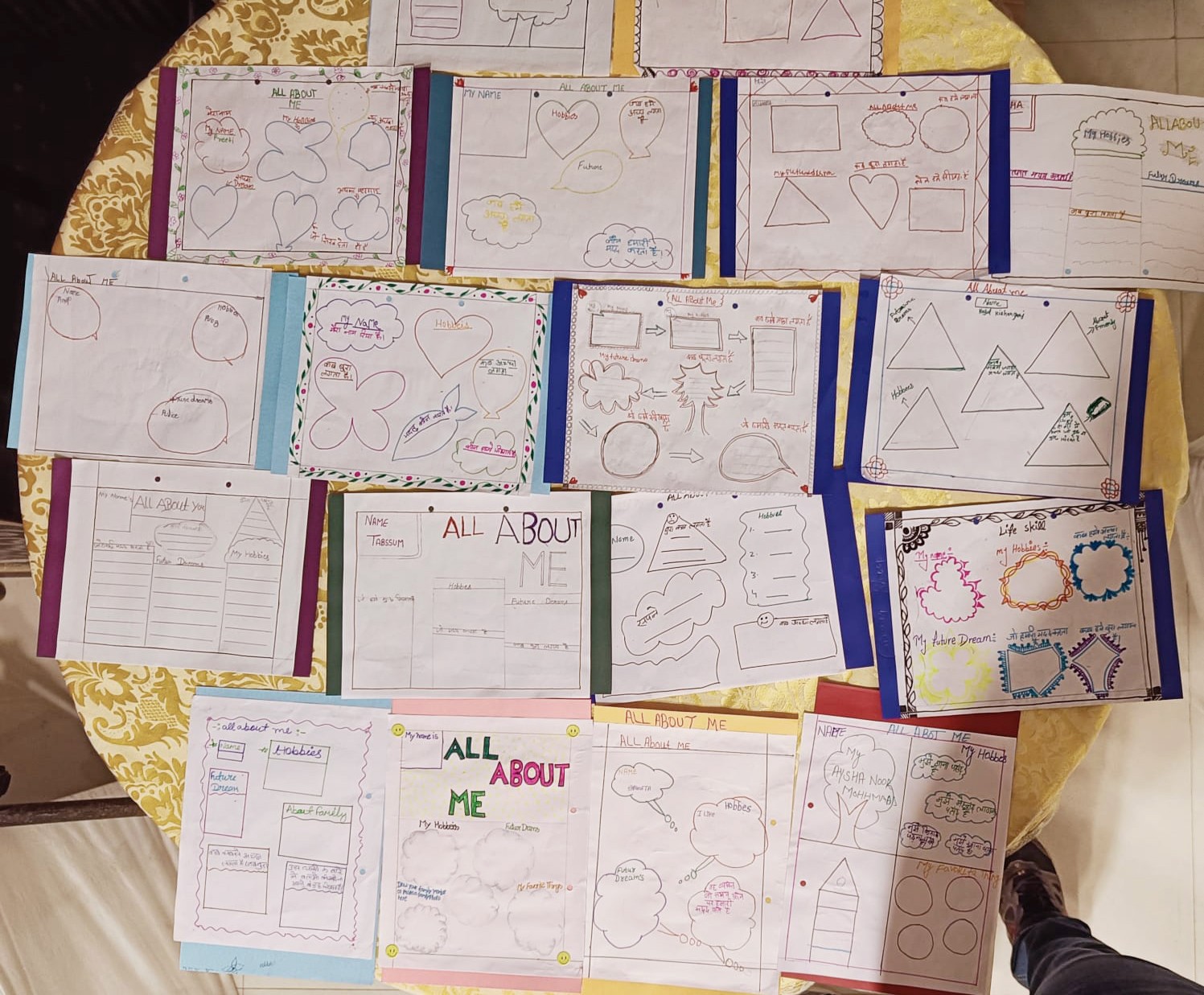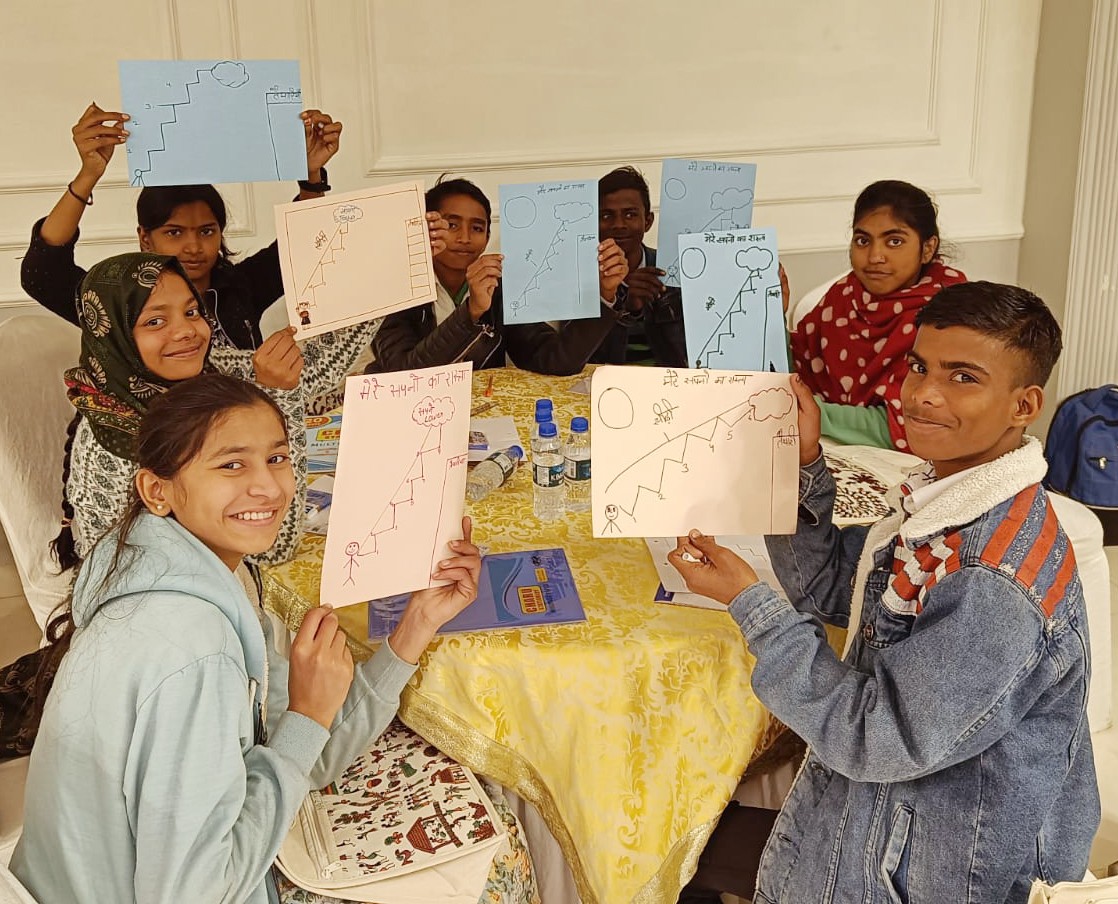Life skills is a broad term that represents a group of myriad skills/abilities, which are believed to “enable individuals to deal effectively with the demands and challenges of everyday life.”
With this understanding in mind, discerning members of society will agree to the need of inculcating life skills in children at young age. Comprising creativity, critical thinking, problem-solving, decision making, communication, collaboration, leadership skills and much more, life skills set the tone for a fruitful life, where a child learns to identify his/her strengths, work on his/her weakness and combine this knowledge to contribute meaningfully to the welfare of society.
Keeping in mind the pivotal role of life skill training in mind, RCI introduced this aspect to our community outreach, within six core communities across Delhi and Ghaziabad. Let’s find out more about the spread, scope and impact of these crucial training sessions.
Where Are RCI’s Life Skills—Training Sessions Held?
Conducted in Tulsi Nagar, Daya Basti, Kishan Ganj, Valmiki Basti, Bicchal Dwar and Chand Mari, these life skills—training sessions are targeted towards children in the age group of 12 to 16 years. For the uninitiated, these communities occupy the fringes of busy transport hubs such as train and bus terminals. Inhabiting these communities are impoverished families who mainly earn a living as daily wage labourers, struggling to survive each day within their limited resources and income.
For several years, RCI has held a deep–running association with these communities, having held several workshops, interventions, programs and even ran Child Activity Centers and Children’s Groups. This persistent presence and healthy relation allowed our team to identify children, or Peer Facilitators, who were set to play a key role in these training sessions.
How Are RCI’s Life Skills—Training Sessions Conducted?
RCI’s life skills—training sessions follow a peer-led approach. The process required identifying peer facilitators from the community and training them to in turn positively influence and conduct training sessions with their peers.
Benefits of Peer-Led Approach and Impact of Life Skills Training
Peer-led approach helps children to not only open up better to share their concerns but also to grasp vital concepts. When peers influence with lived examples and guidance, children are bound to learn and implement concepts better.
Apart from being peer-led, these sessions are also activity-led. Creativity and active participation rule the roost in these training sessions. To ensure this, facilitators are trained in effectively processing their thoughts and ideas into a workable plan that includes games, activities and more.
What Does the Future Hold in Store for Life Skills Training?
We come a full circle with life skills being a broad term, comprising several skills worth learning and adapting. In the near future, RCI aims cover more and more topics during the peer facilitator—training sessions. Relationship management, improved communication, social awareness and negotiation skills are some of the upcoming topics that the team is working on.







